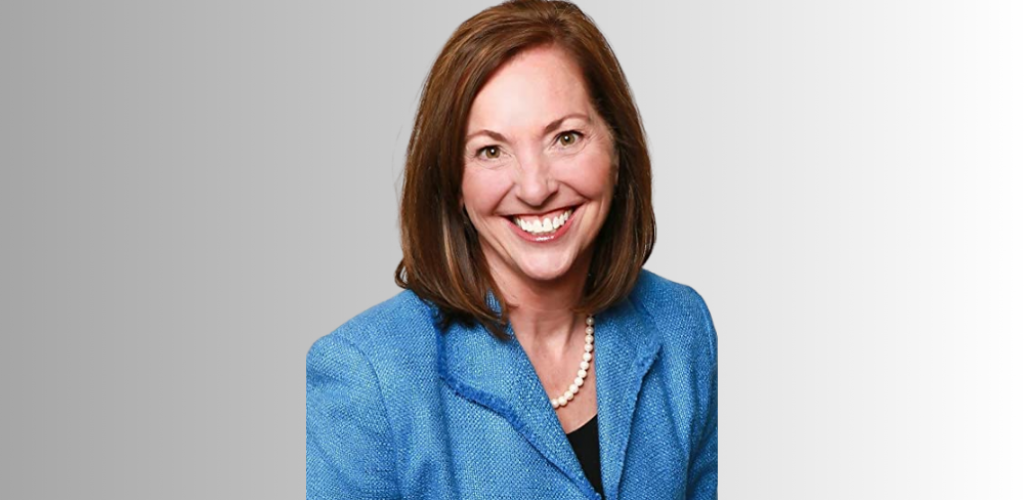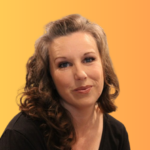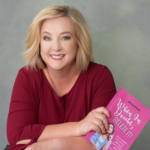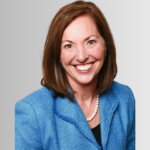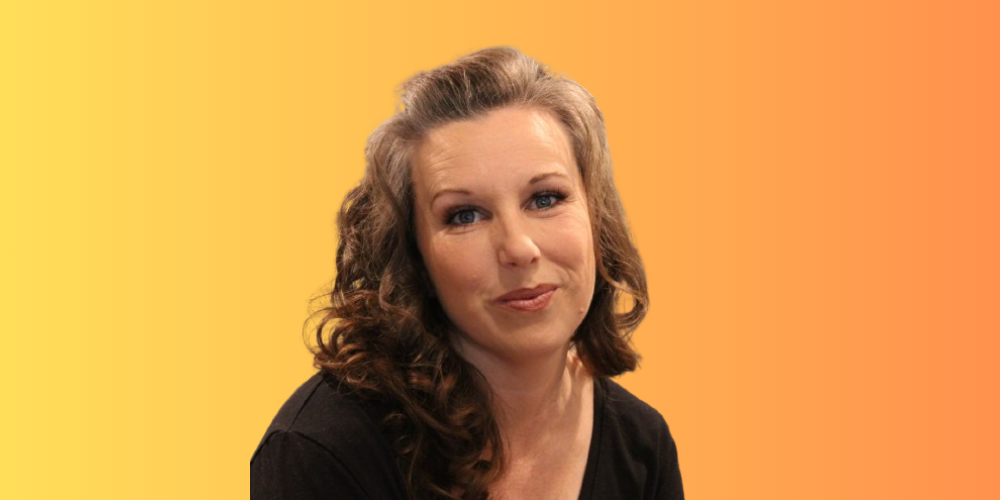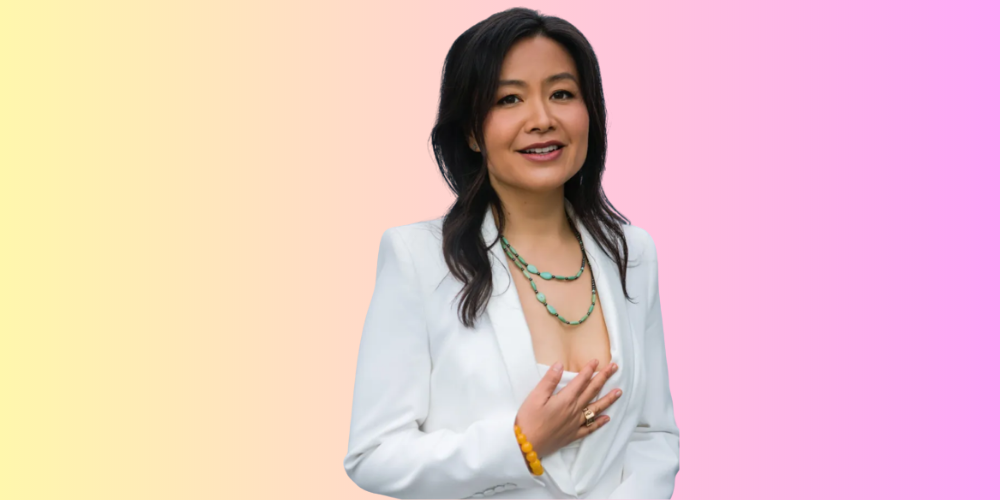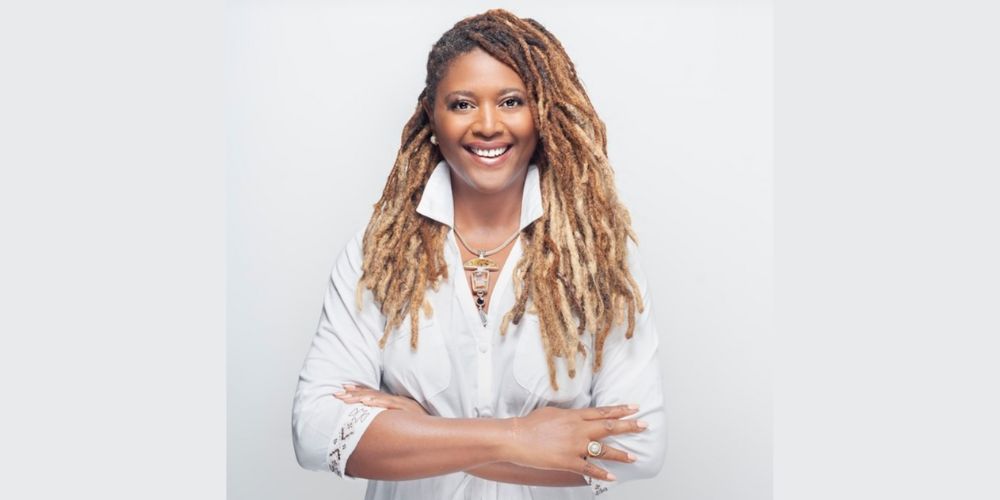Raj Girn: My guest today is Kim Curtis, the founder and CEO of the Wealth Legacy Institute, and the best-selling author of Money Secrets: Keys to Smart Investing and Retirement Secrets. Kim is a nationally recognized wealth management advisor and her groundbreaking work in developing a highly personal client-centric planning model has been recognized in the Journal of Practical Estate Planning, winning the Editor’s Choice Award no less. She has been profiled in the Wall Street Journal, and on NBC, CBS, ABC, FOX, and more. Kim has spoken on leadership, negotiations and finance to organizations that include Oracle, Comcast, and Johnson & Johnson.
Here is our conversation:
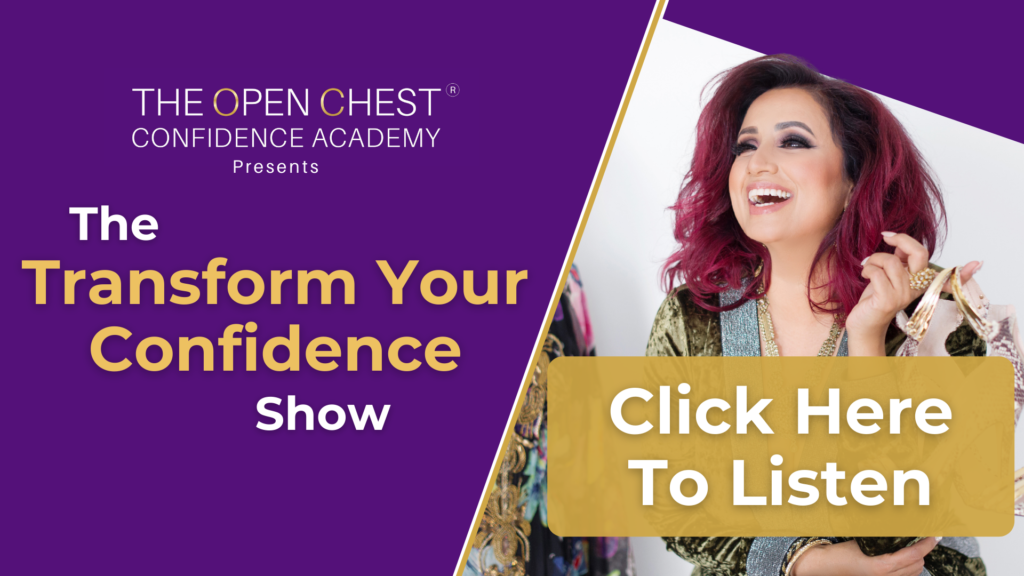
Raj Girn: Without further ado, guys, please welcome the fabulous Kim Curtis. Thank you so much for agreeing to be on Kim. I’m so excited to have this conversation with you.
Kim Curtis: Thanks, Raj. I can’t wait for us to explore what’s in front of us.
Let’s get right into it. I want to ask you this, Kim: You say that money is looking for you. I have to start there. What does that mean?
You are going right into it. I love that. Yes. I think that when it comes to money, it’s probably the number one thing — well, maybe the number two thing — that couples argue over. We can guess what that first one is. But the second is money. And so when we think about, I need money, I need money or how that impacts our relationship, it’s quite the opposite. Money needs you. And the only way money can find you is with your creativity and your ideas and your vision and your values and your imagination. And ideas are abundant.
“The only way money can find you is with your creativity and your ideas and your vision and your values and your imagination. And ideas are abundant.” ~Kim Curtis
So you know, I grew up in Buffalo. And it’s right near Niagara Falls, it straddles the Canadian border and New York State. And Niagara Falls provides electric power to a lot of New York State. But it gets its power from the power plants that line its banks. That’s similar to money.
Money gets its power from your ideas to become of use to the world. Because otherwise, money has no value. Money is just the value we give it. It’s a piece of paper or a card or a digital transfer. But without us giving it something through our ideas and creativity, and it has to be of greater use, then money finds you. Money finds you.
There’s just so much to unpack here. Why does your relationship with money start on the inside?
Kim, I want to ask you that because this is a big part of your belief system and a lot of the work that you’ve done. And the reason I’m asking this is that what we’ve been taught historically speaking, is that it’s everything but that you have to do all the tactical stuff, you have to do all of the learning things. Anything, actually, but the inside. Talk to us a little bit about what you’ve learned with this philosophy of yours.
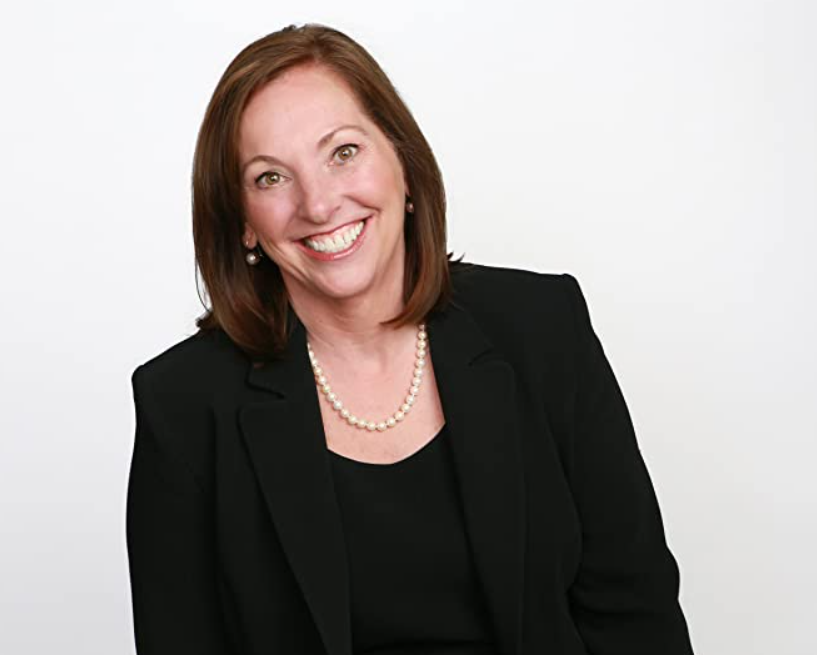
Credit: @Amazon.com
I think the best way to explain an answer your question is through my own personal story.
I’d love to hear it.
So when I was a teenager, my parents got divorced. And my mom got full custody of three teenage daughters. She had no employable skills. So she applied for and received government-assisted lunches. So in North America, at the time, it was a little red ticket, that I would hand to the cashier at lunch. And so I’d go to the furthest line away from my friends, hide it under my plate as I walked down the line, and then look behind me right before I had to actually physically transfer that to the cashier.
And so the shame, the whole not enough. We all know what all of those limiting beliefs are that I had at the time. But my mom had one thing and that was to make sure you get your education because no one can take it away from you. Which is what she didn’t have.
And so I went to school and went to law school, and within six months defaulted on my school loans. I had no business understanding money, and its impact on my credit report. I was completely unconscious. And I was fortunate enough to have an anonymous donor pay $1,000 on my school loan debt.
I always say how you do money is how you do life. If your head is in the sand on money, it’s in the sand in other areas of your life. So the fact that I even opened up that bill is shocking, because I was completely oblivious and I did not want to address anything related to money. And I noticed that the balance went down.
“How you do money is how you do life. If your head is in the sand on money, it’s in the sand in other areas of your life.” ~Kim Curtis
What happened at that time, it was almost like a snap. Because it was anonymous, I couldn’t ask the person, what do you want from me? Or why me? I had to ask those questions to myself. And it was at that point in time, almost immediately, that it was like, well, if someone believes in me, what do they believe in? What do I believe in? Who am I? And who do I want to be? And I will be honest with you, it started with I wasn’t respecting myself.
That is a big one right there. That’s the one we all struggle with. No matter how successful the world thinks we may be, it’s all in whether we lean into that. I’d love for you to share more.
Well, I think you hit the nail on the head, the self-respect actually went into self-love, self-worth. And it was at that time that I realized that if I want to be somebody, which of course when you’re in your 20s you always want to make a lot of money and then maybe change the world, not the other way around.
And I thought I actually am responsible for the outcomes in my life. If I want to be something, I have to be aware of the choices that I’m making, instead of letting life lead me. Events happen in all of our lives, that we may not have control over. But we do have control over our outcomes or our choices.
And I think that’s what hit me at that time. It was, okay, I’m going to start. And it was a journey after that. The snap was immediate in terms of self-love, self-worth, okay, I’m not going to blame, I’m not going to complain. I am going to actually, from this point forward, take the lead of who I am and who I want to be.
How did you do that?
Self-love.
That’s the piece, right? We hear this a lot in social media, because of Gen Y and Z. They’re all about this discussion. But a lot of Gen X people like the boomer generation, it’s not something that we were taught to even consider was something that should be a part of our ecosystem, a part of our self-worth.
Can you talk to everyone that is watching, listening or reading this, how you tapped into that for yourself? Because that’s the hardest part. Secondly, of course, to actually realizing that you need to do that, which is the first part.
Yes, I think as women, it’s the whole not enough, smart enough, brave enough conversation that we have been socialized around. And so for me personally, it was diving in on courage. I think it was courage. And through courage, of saying, I want to do it differently. And by looking at my mom, I knew that’s not what I wanted. The courage that allowed me to then, from that point, one step at a time, make different choices. And I think it really comes down to consciousness for me. And what I like to talk about in terms of money as looking for you is really wealth consciousness.
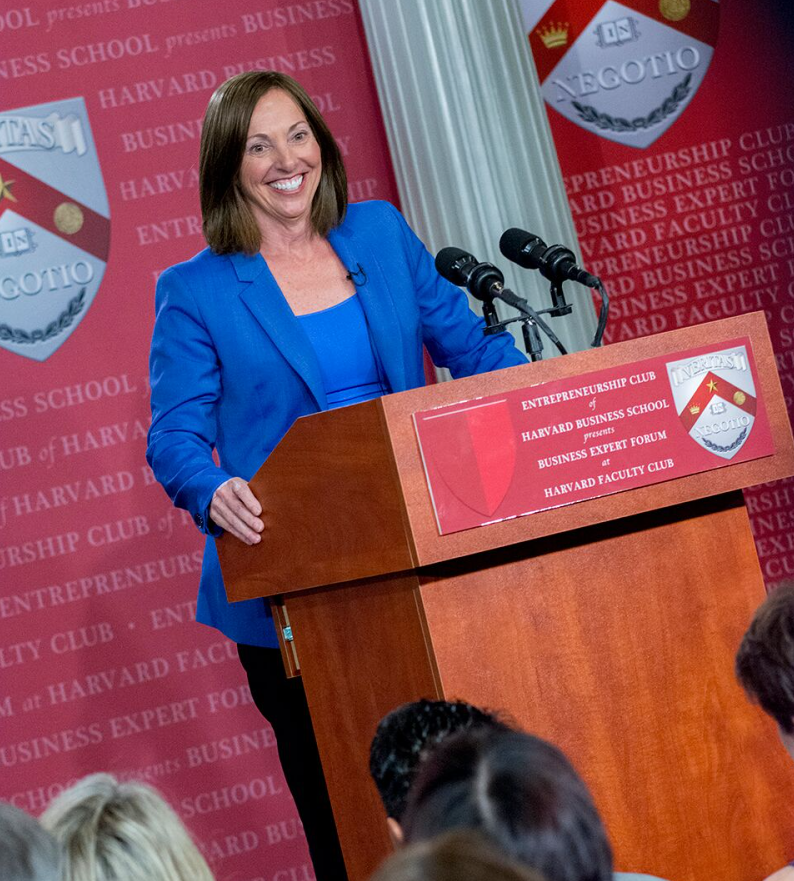
And so I think from that point forward, I became alert. I became conscious of the stories that I was telling myself that were not true. And that gets back to the limiting beliefs and unpacking that. So I think in a more specific way to answer your question and the nature of my work.
When we meet with individuals or families, we call it humana graphics humanity on a graph. In the professional world it’s called a genogram. And they use it in the health care profession to track diabetes, alcohol addiction issues that come through family or hereditary disease. I brought that into estate planning and the conversations around money. So if you plot your family structure, parents, grandparents great, great grandparents, as far back as you can remember and go, and then plot down your family, your children and grandchildren. And then after you plot the structure, you then add questions around it as it relates to education, as it relates to social values, and money conversations.
And what happens is you start to see these patterns that come through, that you may be tight with money. Where does that come from? Well, it’s not even new at all. It was your great grandfather during the Depression. That was a tightwad. And once you start to see these things come through . . . And oftentimes it’s easier to start, like with health, we have diabetes in the family, we have heart disease, or we have addiction issues. Oh, guess what, on the addiction issues, it’s both sides. So that’s the easier conversation to go, “Oh, my gosh, it’s not me. I’m already at a disadvantage.”
But when you put money to that conversation, it’s so much easier to say, “I’m going to have a different conversation around this. I’m going to stop it here. My great grandmother, my grandmother, and my mom all got divorced, because they all got married before 17. And I’m going to change the direction of the role of women in my family with my daughter.” And I think those are limiting beliefs and once you recognize them . . . Because money, we have receptors, right? I mean, neuroscience, we have all these little receptors on our body. We have money receptors, and it triggers some of these emotions, that we wonder where did that come from?
The other day I was with my son and a Lamborghini drove by, and my son, he’s 22 and he still gets excited about this, thought that was an amazing car. And to him it was success. To me, it was like, who would spend that much money on a car? How impractical is that with a depreciating asset most of the time? So that’s a receptor. Me practical, him success.
Right. It’s so interesting what you’re saying here. There’s so much that we can talk about, but what’s coming to me that I feel is going to be very valuable for our audience is this whole idea that you talk about where if you love yourself, then money will follow. This is what you’re talking about.
And I want to take that into a realm that I feel is going to be very important for us to talk about. And it’s this Kim: Historically speaking, and you’ve touched upon some of it, women as nurturers have been taught to give and not so much receive. And their receipt was about their nurturing role. It was about the giving role, right?
Do you feel this factors into why women have been left in the dark about the techniques in acquiring the right mindset to attract money? Because they’re always going this way, instead of going this way?
I think that it’s a bigger question. The first thing that comes to my mind, let me take one side, and then I’ll take the other side. When you think of love and giving, love is the one thing that creates success. It’s love first, not money, believe it or not. Because if you have love you’ve performed better, you feel inspired, you’re complete, you’re in a position where you have a better outlook, all those things. And when you have that out, you’re more likely to give to others. So you’re more generous with love.
“When you think of love and giving, love is the one thing that creates success. It’s love first, not money, believe it or not. Because if you have love you’ve performed better, you feel inspired, you’re complete, you’re in a position where you have a better outlook, all those things. And when you have that out, you’re more likely to give to others.” ~Kim Curtis
And money is that glue that holds a couple together, because you can pay your bills, you can buy the house, you can send your children to school. If you choose to you have freedom or security. So that’s the one side. So as women there’s whole socialization around love, that gets back to where you are going to give not receive. So let me say one more thing, that without love everything you do seems empty and you’re empty inside.
So money is merely a tool as it relates to learning to make money work. And money is not evil. But that’s a whole other thing on that pushback. Greed is, money is not evil. And money is who you are already. So that is one side of love and our conditioning as women around love and giving and where money fits in because we tend to be unconscious around money. As women on the other side, if you think of money that we created to have global exchange in this world, it was created by men.
The language has nothing to do that brings us in: GDP, inflation, Federal Reserve, I mean, there’s nothing that leans in, that feels good. There’s nothing loving about that. So we back off. So here’s the other piece that hopefully answers your question. More specifically, there are two laws of money: the human-made laws, which is what I do every day, portfolio construction, estate planning, tax mitigation, you name it.
And then there’s natural money laws. The natural money laws, as women, all of us have it. It’s innate in who we are. And the first one that I think of is giving and receiving. You need both in harmony, both natural money laws and human-made laws in harmony. The natural money loves giving and receiving and harmony, ebb and flow. As entrepreneurs, it’s not always making a lot of money, there’s ebbs and when it ebbs, and it’s dry a little bit is when we should work on ourselves and grow ourselves.
During the abb, we need to add just like we need to go to bed at night, just like the seasons need to change. It’s the same with money. So cause and effect, supply and demand, intention, desire, clear agreements. All of those are natural money laws that we already have in us. But because of industrialization and how we’ve proceeded, it’s moved away from us.
And so if we know how to put that in balance, and then get smart on the human-made laws, even though the language is not as attractive to us, then we could have money success and understand that money is looking for you. Bring out your natural money laws, because it’s already in us. So if money is looking for you, Raj, what ideas would you have for it?
I want to ask you a couple of other things. And then I want to tap into some of the things that you do, just because I want to make sure that everyone that’s listening, watching and reading this . . . you know, we’re talking to an audience of women and men . . .
I’m curious for you to share your insights, your experience around this through your work. Have you found that men and women think differently about money? And if so, how? That’s part one. And part two is how do we bridge that? How do we align and work together so that everyone wins in this love affair that is gender and money?
I love that. Yes, absolutely. Thank you Absolutely. That’s a great question on that men and women approach money very differently. Money, because it was created by men, it’s easy for men to engage in and lean in. And you could put power behind it in some way. So generally, from the nature of my work, it’s usually the investments that attract men.
So people come to our firm, when they have a lot of money and they need to manage it. Usually, that’s a man coming to say, “I can’t do this anymore. right? I’m scared. And my wife is not engaged.” So they come to us to make sure that the wife gets on the same page prior to going into retirement.
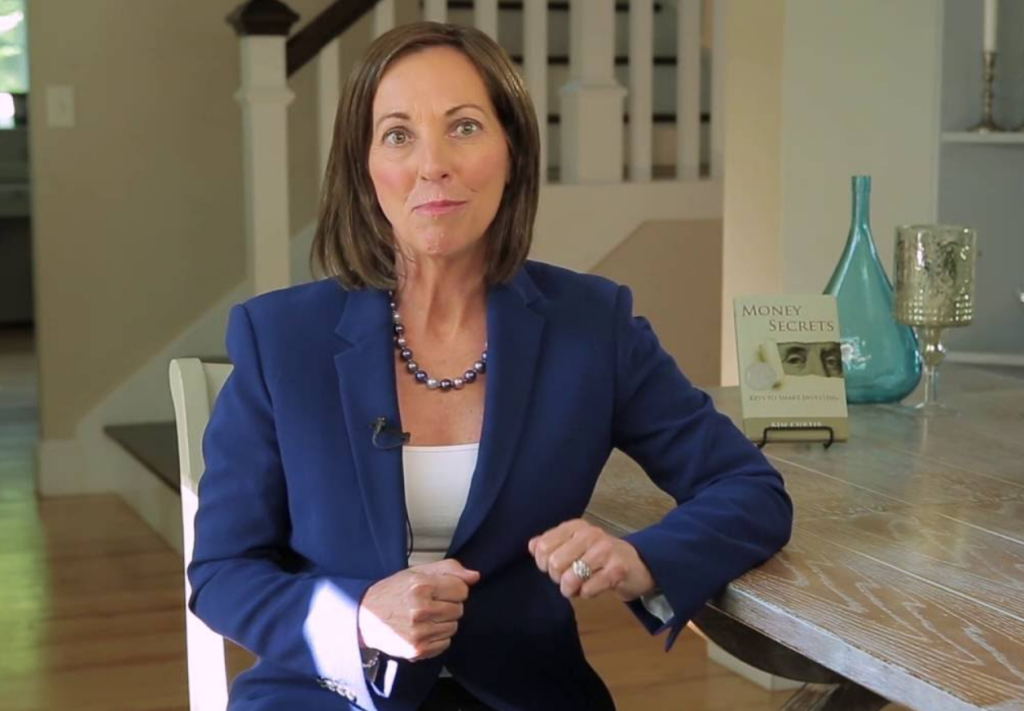
So how do we bring the wife into the conversation that they’ve been chosen or alienated from the money conversation up to that point, and the wife may think that they know what they’re doing on money when they really don’t, right? They fake it. Just like the women may be doing the cash flow in the household. And they know what the budget is, but then they get blamed for when the budget doesn’t work.
So there’s lots of different things. So here’s how they come and tell us. Women generally love to have conversations about our family. We love to have conversations about how to educate our children and our money so that they can be smarter than the mistakes we made. How can I take care of my aging mom, and still have college age kids going to college? How do I bring my marriage together, that I can be heard at the table and get my values expressed, especially if my mate is about to step off, and going to be in my world 24/7 when I really don’t want that? I have my own independence, I have my own friends. And I don’t want to be their friend and entertain them.
So the conversation is really on what does that look like in terms of joint collectiveness, togetherness, and separate hobbies and values and guide time. And a lot of men don’t have male friends once they leave their employment. These are generalizations. But our job is to bridge that conversation to have it more meaningful, because it’s never ever about the money. The money is just a means to an end. So for us to bring the spouse in, it’s the first time that they have joint goals, that they’re on a track together that is shared. It’s empowering. And when they find out that all their life and the saving that they’ve done, that they can finally step off in the life that they choose, it’s emotional on both sides, but especially the male. It’s extremely emotional to know, I did it.
I feel that we have to give a bit of space to a certain thing that’s coming up for me here. And I feel it’s something that we don’t do a lot as women because we’re coming into our own empowerment as we should. I feel that expecting allyship from our male counterparts is something that we have to draw them into as well. Like, it’s an expectation that he should know. Especially when you look at the Gen Y, the Gen Z generation, they have a lot more power as women, because of the resources, what kind of parents they had, people like me, people like you, right?
So they have a different sense of empowerment. But then what I find is that the men in that generation are finding it a lot more difficult to step into what is expected of them from these empowered women. And I do feel that we’ve had 1000s of years where the man has told the woman what to do. And now we’re kind of getting to that tipping curve of where women are demanding not their seat at the table, so much, but their own table to sit on. Right?
How do we bring the men to that table as well? Because I do see that we’re going to be on the other side of that seesaw in these next couple of generations. Let’s address that first, because then I want to go into some of the investment things and how do we plan for retirement, because that’s such a scary place for all of us to be in for many reasons, which we’ll get into next.
Tell me what you were going to say. You were saying, “I feel that . . .” Where were you going with that?
I feel that we’re going to end up doing as women, what the men have already done to women. Because we feel we need to be male, like in order to win the game of life. When I feel that we need to marry our male and female parts of ourselves, create that bridge where we know when — a seesaw, I think, is the best visual — which, if not both, need to be used and utilized to empower and self-regulate the ecosystem that is within us. And I feel that’s a lot of what you’re talking about, the self love the definition of what that should be because we talk about it, but do we actually know what it means?
Right. I think that we’ve been talking generationally of different women and different generations. And so to clarify that is really important. So the conversation that I just had is primarily Boomer women. When I think of my daughter who’s 25, is she money smart? Of course. Thank you, because of mummy.
Thank God for you.
And her boyfriend of three years, they are already at the table together. And they have separate bank accounts, and a joint bank account. So she has her money, he has his money, their checks go in. And then it goes into the household as it relates to their expenses. They talk about their joint goals, which is buying a house together, and how much that will look like. And they’re both having the conversation. They’re both deciding what realtor to hire, based on individual relationships, and negotiating that. Younger women, I think, generally, and I have a negotiation background, tend to be better at negotiating than older generations.
The future on that seesaw is already here. So how do you make sure it doesn’t go like this on the opposite gender side? And, you know, I don’t see that. Because when I think of countries around the world, in some of these impoverished areas, it’s give the money to the women to do the job, to make money, to raise your children, to lift up that community. And they’ve discovered that those communities are all boats rise with the tide, not one side or the other.
“When I think of countries around the world, in some of these impoverished areas, it’s give the money to the women to do the job, to make money, to raise your children, to lift up that community. And they’ve discovered that those communities are all boats rise with the tide, not one side or the other.” ~Kim Curtis
I think women, generally speaking, understand the family and the greater community good. To not have that imbalance . . . And I don’t think women want the imbalance because again, the power lead is not generally part of my daughter’s existence. It could be the baby boomer that had to survive in a male field of finance and law. Yeah, to have success in that profession. But that isn’t what I see in our daughters today.
This brings us to the perfect juncture to have the second part of our conversation. And it is this. So knowing what self love actually needs to mean and that relationship of alignment that allows us to then tap into being more healthy with our relationship with money. We’re also looking at different generations, different upbringings and different ways of thinking about money, as well as about investment and retirement.
Now, this is an area of your expertise, you’ve written a book about it. Let’s do that. Let’s dive into that a little bit. Knowing that we’re talking about the boomer generation, which has no choice but to talk about retirement, and the younger generation, which, in my conversations, and please correct me if I’m wrong, are already talking about planning for retirement this far ahead, which wasn’t the case.
With the older generations, both of them are on the same path, they both need to be able to have a healthy relationship with money that allows them to live out their years without compromising on their lifestyle that they’ve been accustomed to for decades before. I feel like maybe what you’re gonna share is maybe a little bit different for both of those to be able to empower themselves with the investment thing, which then parlays over into the retirement thing. Talk to me.
I think we already talked about the Boomer woman as it relates to get a seat at the table. And women already somewhat know that if they’re divorced, and they are doing that themselves, and many choose not to remarry. So we kind of hit on that a little bit. For the younger generations give me a 20-year-old and I can turn them into a millionaire quite easily.
Oh my gosh.
Quite easily. Because it’s not the capital markets that fail. It’s human behaviour. And when you have time it naturally unfolds based on what we know in the past. So when I think of a 20-something-year-olds and they all want to be millionaires. Some don’t. Obviously, my son does.
So does mine.
It’s about habits and starting early and putting it on automatic pilot. So if you’re lucky enough to have a 401 K plan or some kind of retirement plan that automatically comes out of your paycheck, you’re a fortunate one. But you want to do it now before you get used to the extra money.
And it’s hard when you have school loans and feeling like you’re sinking. But you always want to pay yourself first, which seems like a cliché, but it’s the hardest thing to do. Because if you don’t pay yourself first, no one else will. That gets back to self-love.
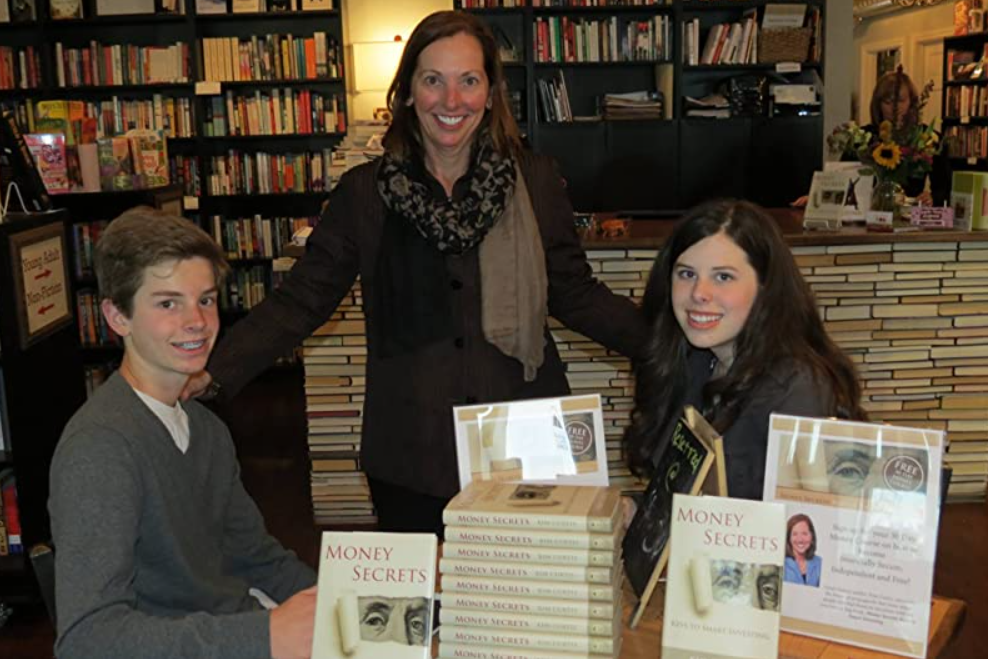
Oh my gosh, I feel that that is the massive one right there. Because we’re taught to pay everything. And then whatever’s left over is what should be ours. Talk to me a little bit about that.
When I think of myself, when I defaulted on my school loans, and in today’s dollars back then it was about $92,000. It was a lot. So it’s easy to have shame around your debt, not to mention shame around the red ticket, the debt. So I think that by what I did is I had a credit union, like a bank, depending on where you live. And I actually started out with $50, from my paycheck going into this credit union savings account. And then when I finally got to $3000, it was remarkable.
Of course, I didn’t think of it like I needed cash reserves, like an emergency fund, I was afraid I would spend it. So I put it in an investment account. And then by that time, my legal background took me into finance. And so with my $3,000 going into finance at age 30, I remember and then it would go from $50 to $100 to $200 a month to $500 a month. Every time I got a pay increase, I would increase it into my savings or for whatever the retirement plan was. I remember when I had $25,000. And I remember calling my mom and saying “I saved $25,000.” And I remember the excitement in my mom’s voice. I could tear today, because I knew she didn’t have it.
And then it was $50,000. And then $100,000. And that momentum when you cross over $100,000 is you know how much it took for you to get to $100,000. So you’re not going to spend wildly because that took a lot of work. So it’s self-reinforcing. And then when you see $500,000, all of a sudden, you get this money mindset of understanding. And you could get it at $50,000. You could get a $25,000 automatic pilot, you’re not thinking about it. So whatever’s left over is what you could go out to dinner with or have entertainment. That’s last, not first. That is how I was able to get out of that debt of $92,000 school loan.
And now CEO of a wealth management firm, multimillion-dollar, I mean, the success of that, if I can do it, are you kidding me? Every 20-year-old should understand automatic pilot. And we could talk specifically about investing if you want a little bit.
I want to go that next and the reason why I want to do that Kim is because a lot of people don’t get into the investment game because it’s not something most of us know much about. It’s not something we’re taught in school. It’s not something that life teaches us. Or maybe we’re not listening to life.
But as a result, many of us head into retirement having to scale down our lifestyle to survive with the money that we’ve been able to save through employment as the main resource when there are other ways to make money. This is why investments are important.
“Many of us head into retirement having to scale down our lifestyle to survive with the money that we’ve been able to save through employment as the main resource when there are other ways to make money. This is why investments are important.” ~Raj Girn
How can we get into the investment game, so as to upkeep the standard of the life that we’re accustomed to, or even elevate it beyond that? Again, I want to come back to the fact that you wrote a book about this.
Yes. And you asked three different questions in that.
I did.
You did. And so I’m not sure where to go.
Let’s go here first. A lot of people do not understand the investment game, therefore they fear it. Because we fear that which we don’t know. We’re never taught it, historically speaking, in our school systems, or any of that. What do people need to know that is an absolute ground zero into entering that game? Is it the mindset piece? Is it the savings piece? What is it?
So let’s assume the mindset is you’re trying to get it but we just need to start. So we start with that $50, $20, $5 a month, whatever it is to start the habit. And you use the word game, which I find very interesting that it’s not a game, it’s really not a game. But we perceive it as a game because it’s led by men in Wall Street brokerage firms. And when we think of Wall Street, Wall Street doesn’t want you to know money. Wall Street wants you to use them. That’s how they make money.
So the languaging is actually complex, just like law, so that we need the services because we feel like it’s too much we don’t understand it. My book that I wrote about money secrets, actually pulls back the curtain on the billion dollar financial services industry to reveal why smart people make bad investment mistakes. So the investment piece is actually the easiest piece. It’s a commodity. Think of artificial intelligence and all these other things, that the investment is actually really a commodity today.
So number one ground zero piece is that you do not want to go to Wall Street, you want to go to somebody that actually is a fiduciary to you, like a CPA, that’s not selling you anything. And that’s not a bank, believe it or not. I mean, sure, you could go to a bank for your savings account. But in the nature of my business, it’s the registered investment advisory firms, they’re fee only not fee based, the languaging is blurred in the last couple of years. The SEC has blurred and the Department of Labor has blurred that language so that almost every firm is considered a fiduciary, when in fact, that’s really not true. If they sell you something, then they’re not.
So understand that in the nature of finance, many of the people 85% to 90% are in sales. The remaining 10% or 15%, are truly like a CPA that can give you advice objectively. So first is, where are you getting your advice? And is it objective? There’s an organization called National Association of Personal Financial Advisors dot org. napfa.org.
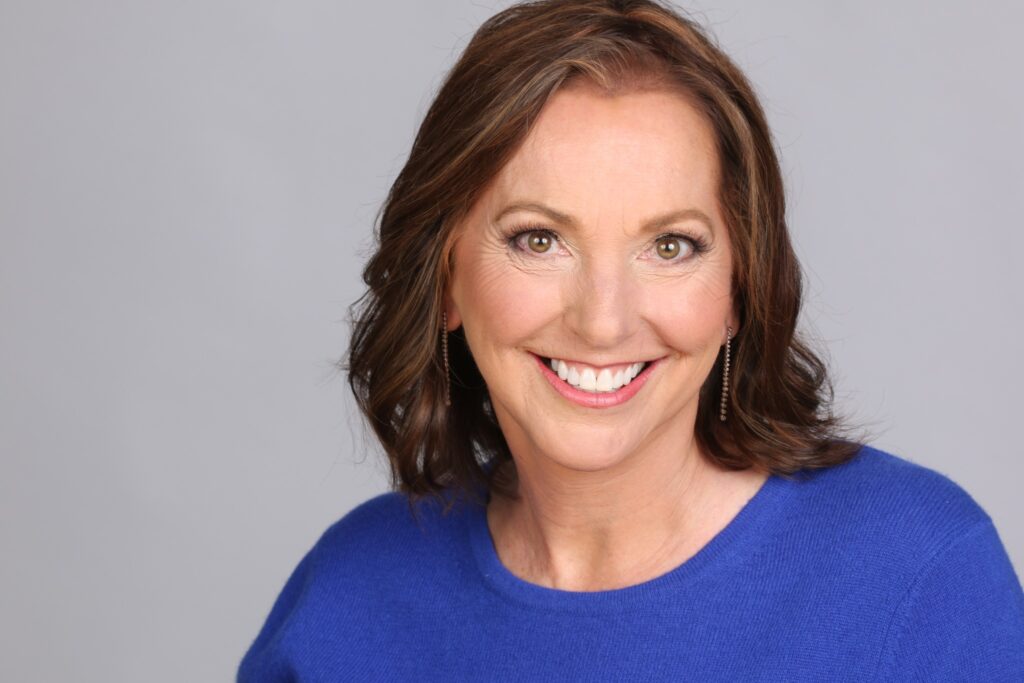
And we can put that in the show notes. nafa.org, where you can get an hourly person to help you get your game plan and then once a year meet them. What are we doing? How are we on track? And that will help you. So bottom line is, don’t find someone in sales. That’s like going to a car dealership and thinking you’re going get the best deal. No, that’s not true.
They work for the house not for you. They work for their brokerage firm, not for you. It’s baseline, understand that. And if you’re getting started out as a 20-something or 30-something, get an hourly planner that can meet with you and your mate once a year to get you started. Now say you don’t even want to pay for that. You do your tax returns on your own. There is now digital investment platforms that you don’t even have to think about how to invest it. So one of them is betterment.com, where you just say this is my risk. I’m 60% stocks, 40% fixed income. Or I’m younger so I want to do 90% stocks.
And you want a little bit of the bonds, fixed income, because it’s like your ballast on your ship, it’s a stabilizer. And most of us can’t handle when markets go down. It’s like a roller coaster, we want to get off. And that’s why it fails. If we just ride it out knowing that this goal is 20, 30, 40 years down the road. That’s when you add new money. Like right now with the capital markets, this is when you don’t retreat.
This is when if you have extra money, you put it in knowing that you need at least five years before you touch it. If you invest, not save, invest, you need at least five years, ideally tab. Before you ever, ever, ever touch that money. So when it ebbs, you’re not worried about it. That’s why it’s so important to have cash reserves so that your long term goals are out there. And the markets do this. Let them ebb and flow. And during the downside, if you’re in your 401k do not touch it. Just keep it going.
Because now you’re buying cheaply. It’s on sale. Don’t mess with your investments in a down market ever and don’t take loans against your 401k. That’s the worst thing ever. You think you’re taking it from yourself and you have a low interest rate but you pay it back after with tax dollars. So you’re taxed again, later in retirement, it’s the worst place to go for a loan.
So much value so much that you’re sharing with people that we just don’t know about Kim. Before we carry on because I know we’re going to be getting ready to close off soon. Our time is almost at that place. Can you share for everyone out there watching listening or reading this if they want to be able to learn more about you the different things that your firm does and how they can actually work with you. Where are we sending them?
Yes, wealthlegacyinstitute.com is the firm. But YouTube, Kim Curtis YouTube, I have done many, many videos on how to buy a house, is now a good time to buy a car, what to think about that are really useful short videos that really help in whatever that event is in transition.
Is it too early to plan for retirement if you’re in your 20s?
No, never too early. I love that question because remember I said, give me a 20-something year old and I can turn them into a millionaire over and over and over and over and over again in my sleep all day long every day. But it’s getting started. It’s getting started and ignoring it. And this whole fire movement of stepping off in your 40s You hit it. This was one of the . . . I said you asked me three questions. And this is where multiple sources of income is so critical.
And the baby boomers did not understand that because they were the big experiment on 401 Ks, their parents had pensions. And they didn’t have to manage money. The baby boomers were the experiment of having to manage money unless you worked for the state or federal government or like key enough to still have a pension. But our children’s generation, it’s all completely up to them.
And so to have multiple sources of income, unrelated to a paycheck from a corporation is big. And they already know that. There are side hustles that exists. There are so many opportunities to have real estate, investment income, to have side hustle income. And then of course investment income you absolutely need for the longer, longer term.
I think that they can teach us how to do that because they are masters at it. I watch my daughter. She works for a company but she also does dog sitting. And she makes $500 a month just doing dog sitting. And she loves it because she wants a dog later. But they have a town home, so she gets the love of a dog without having the responsibility of a dog. So that’s just one example of many, but she gets it.
What about the generation that is nearing retirement? And they feel like they don’t have enough money to stay in the lifestyle? What would you say to them? Because I feel that’s the more difficult question that a lot of us don’t know how to answer. I defer to you.
I honestly think that there’s no amount of money that can create an extraordinary life. No amount of rate of return, no amount of money, that can create an extraordinary life. So I tend to see that people fall into whatever that is for them. You know, instead of the $10,000 a month, a $15,000 a month lifestyle. Maybe it’s the $3,500 a month lifestyle.
And that $3,500 a month lifestyle is social security and a job through retirement and the downsizing of perhaps their real estate, their home if they were lucky enough to own a home. Their property because what I see is their biggest asset in that particular situation is their house. So if they move to an area that is less expensive.
A lot of people I’ve heard moved to Tennessee. Shocking. There’s a few communities near a lakes in Tennessee and the taxation is inexpensive and the quality of life in this area outside of Nashville, Knoxville. I have had three different clients move to that area. I’m shocked. But, again, from Denver to Knoxville area is very different in terms of costs of living.
So many things here because a lot of conversations that I’m having now, in my age demographic with friends of mine, colleagues of mine, at my age is the big idea of how do I retire? Like, where and what do I need to do? And you’ve just mentioned a few really important things.
It’s not just about how much money you have. It’s about how much money you actually are spending. Where can you move, where perhaps it’s a cheaper lifestyle, but you’re still comfortable, right? There’s so many ways of looking at this.
We have clients that have moved abroad. Went to Portugal and Spain for their retirement years. Sometimes on average when we’ve had expats, oftentimes it’s three to five years that they stay. But we have a couple clients that have passed the five year mark. You can also do that for medical procedures. We’re seeing clients do medical procedures abroad, because it’s less expensive. And the skill set is actually there. So different types of things to do more with less money.
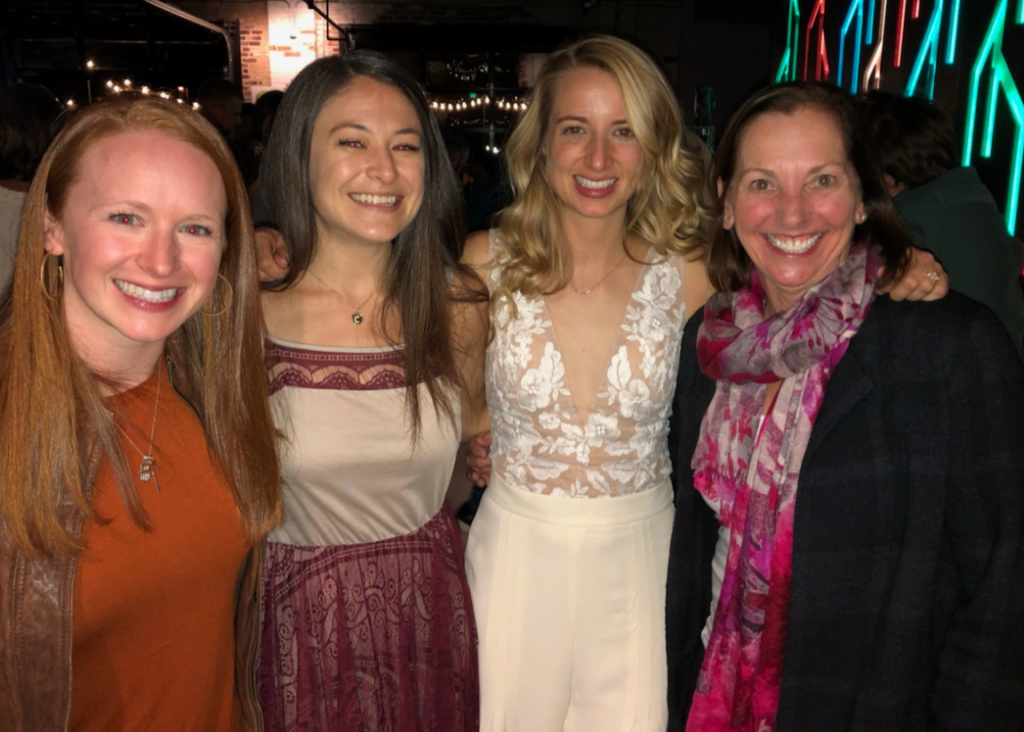
I feel that’s a big fundamental piece. Because we’re constantly talking about how do I make more money? And we’re not talking about how do we get more out of the money? That’s the other part that you’re talking about here as well. Kim, I want to ask you this: There’s a lot we’ve talked about. And I feel like we’ve just only touched just specs of is the big conversation. I want to ask you this. So we can kind of round things up.
And I want people to just come and have those conversations with you. I want them to come to your YouTube channel. I want them to start this journey if they haven’t. I want them to maybe re-examine the place they’re at, if any of what you’re talking about here is speaking to them and they’re feeling they need to look at this a different way. Any final words you’d like to leave everyone with before we close off? Especially for people who are scared to invest for fear of losing the money that they currently know that they have? That’s another big piece here as well.
I think we started the podcast the show and we’re going to end at the same place, that if you know that money is looking for you that it’s not scarcity, it’s abundance. Abundance, joy, love. Love, joy, abundance. If you know that money is looking for you, what ideas do you have for it? And what that means is for creativity, what imagination, what vision, what values as women that you want to bring to that conversation to make money meaningful to you? In society the meaning we gave it is just a means of exchange.
So if you know that, and money and ideas are unlimited, and most of them aren’t that great. But if we know that they’re unlimited, and then all sudden, we feel like “oh my god, that’s a good idea.” And you feel the energy around that. Then take a step forward. Take another step forward. And remember, it’s not all success, it’s failed success, failed course, correct course. Right action move forward. So when you change it, that money is looking for you not you need money, all of a sudden it opens your brain to a completely different paradigm that’s very accessible.
Is there anything that you feel people need to know, as we close off that I haven’t touched upon or I haven’t asked you? Anything at all?
That’s a big question.
Or a big answer. What would be the fundamental one, based on the conversation and the subject matter that we’ve been taught?
Yeah, learn to love and be loved. If you learn to love and be loved, that turns into inspiration. And that inspiration is in the energy. And that energy brings more ideas and creativity and fantasies and vision.
“Learn to love and be loved. If you learn to love and be loved, that turns into inspiration. And that inspiration is in the energy. And that energy brings more ideas and creativity and fantasies and vision.” ~Kim Curtis
I love the idea around energy. Fundamentally, that’s the whole conversation we’ve been having here. One more time, Kim, your website? And also, where are we sending them to go hang out with you on YouTube?
Yes, Kim Curtis, YouTube. But what’s also important, we could give out some free stuff at financialliteracypress.com. There’s 10 laws of money every investor should know. There is an aging parent guide. There’s lots of good juicy stuff at financialliteracypress.com.
Thank you so much. I have loved our conversation, Kim. I feel that you’ve taught me so many things, in terms of how I should be looking at my relationship with myself and money. But you’ve also opened up this whole idea that we need to have this relationship.
A lot of people go through life, and they actually don’t have this as a relationship, right? The amount of time and effort we put into our children, into our animals, into our parents. Are we putting that same amount of time into our well being? A part of our well being is this discussion around our definition and our relationship with money, with abundance.
Thank you so much, Kim. I really appreciate the time that you’ve shared, your vast knowledge, and just the snippet of it that we’ve had the opportunity to experience today.
Thanks, Raj. Thank you so much.
Absolutely. And please come back on. I feel like I need more of you. Folks, if you’d like to learn more about what we’ve touched upon today, I encourage you to go head on over to Kim’s world, you already know the little bit, we’ve talked about this. So much more that you can tap into.
And as usual, I really hope that you got some real value. And I know that you did from today’s show, and will share it with every single person that you know, because it really will help them establish a healthy relationship with themselves like a deeper and more meaningful relationship.
Also as I always say to you guys, I hope that you will subscribe to my YouTube channel and hit the notification button at The Open Chests Confidence Academy, so that you’ll never miss an episode when we drop them on Wednesdays.
I also would love for you to download it on podcast platforms. And there you just got to go find The Transform Your Confidence Show. And just please give it a five-star rating if you feel that we are providing you with valuable resources. And I hope that we are able to assist your journey to empower your confidence with actionable insights because that’s the whole point here about this show.
You can also go and read about the show as a podcast as a blog theopenchestconfidenceacademy.com/media/podcast and as always guys, I will see you next week for another invaluable episode packed with insights and learnings just like today to help you empower your work, your life and your spirit. Thank you so much. Please take care of yourselves.
To contact Kim Curtis: Youtube, Facebook, Twitter, LinkedIn, Web



